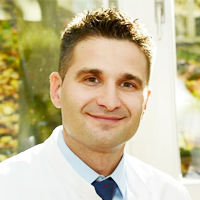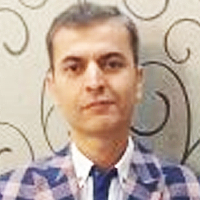Tracheotomy in Severe Head Trauma: Early vs. Late
Published on: 19th January, 2024
Introduction: The evolution of a patient with severe traumatic brain injury may require the use of a tracheostomy as part of respiratory weaning. The central question revolves around the optimal timing to replace intubation with tracheostomy. The aim of this study is to evaluate the hypothesis that early tracheostomy reduces the incidence of ventilator-associated pneumonia (VAP), the duration of mechanical ventilation (MV), and the length of stay in the intensive care unit (ICU).Materials and methods: This was a retrospective study including all patients admitted to the department over a period of 08 months. Various historical, demographic, clinical, biological, and progression-related covariates were collected upon admission.Results: Among the 69 patients included in the study who underwent surgical tracheostomy, two groups were formed: those who underwent early tracheostomy (within the first 8 days of mechanical ventilation) and those with late tracheostomy (after 8 days). The early group showed a significant reduction in the duration of mechanical ventilation (16 ± 3 days) and length of stay in the intensive care unit (17 ± 3 days) compared to the late group (23 ± 6 days and 30 ± 11 days, respectively). No significant differences were observed regarding the incidence of ventilator-associated pneumonia (VAP) and mortality between the two groups.Conclusion: This study strengthens the existing literature by demonstrating that early tracheostomy is associated with a reduction in the duration of MV and length of stay in the ICU.
Impact of Balanced Lifestyles on Childhood Development: A Study at Crèche
Published on: 9th January, 2024
Introduction: In our fast-paced world, children’s dietary habits and behaviour are increasingly concerning, with a tendency toward indulging in sweets and snacks. Insights are derived from observations of 20 children at a crèche facility.Temptation of sweets: Children’s inherent attraction to sweet and salty snacks challenges maintaining a healthy diet. Excessive consumption can lead to health issues, recognizing the pivotal role parents and caregivers play in guiding children toward healthier choices.Significance of a balanced diet: A well-rounded and nutritious diet is crucial for a child’s physical and mental development. Providing fruits, vegetables, whole grains, and lean proteins is essential.Role of activities: Diversifying a child’s routine with engaging activities is a powerful strategy to redirect their focus from unhealthy snacks. Sports, arts, outdoor play, and educational games promote physical fitness, creativity, and cognitive development, contributing to a well-balanced lifestyle.Strategies for encouraging healthy choices:• Lead by example: Modelling healthy habits inspires children to adopt similar behaviour.• Educate about nutrition: Imparting knowledge about the nutritional value of foods equips children to make informed choices.• Make healthy options accessible: Stocking the kitchen with nutritious snacks makes it convenient for children to opt for healthier alternatives.• Limit unhealthy choices: Setting clear limits on sugary snacks helps children develop moderation and self-control.• Create a fun and active environment: Fostering an enjoyable environment involves family outings, games, and making exercise a natural part of daily life.Results: Encouraging results were observed among the 20 children. Two children, aged around 12, demonstrated awareness of healthy habits. Excluding these two, others showed positive changes in behaviour towards sweets and snacks through activities and counselling.Conclusion: Maintaining a balance between a child’s consumption of sweets and snacks and engaging in diverse activities is crucial for overall development. A combination of nutritious choices and engaging activities guides children toward a path of health and happiness
Genital Condyloma in a 2-Year-Old Child Secondary to Circumcision: A Case Report
Published on: 10th January, 2024
Accumulated condylomas are exophytic tumors with a warty and hyperkeratosic surface due to the Human papillomavirus (HPV). Its prevalence in children is difficult to estimate due to limitations in epidemiological data. Its recurrent character is found in 30% of patients. Its management is very complex in children because of skin fragility. Circumcision is an operation consisting of the removal of part of the foreskin. This practice is done either with a simple knife or a pair of non-aseptic scissors which can be a source of contamination including HPV (Condyloma). Traditional circumcision does not seem to be reported in the literature as a mode of contamination. We report a case of genital condyloma in a child 2 years after circumcision. This is a 2-year-old male with no medical history but with a surgical history of circumcision that was brought by his parents in dermatological consultation for papular lesions accumulated on the penis. At the interrogation, we found the notion of recent circumcision performed by a tradithérapeute. The physical examination finds a good general condition. Dermatological examination reveals on the glans of multiple papules, exophitic, with warty and hyperkeratotic surface, of normal skin color. Furthermore, the physical examination of both parents was normal. The diagnosis of accumulated condyloma secondary to probable circumcision was retained before the clinical appearance of the lesions. Two electrocoagulation sessions spaced one month apart under local anesthesia were the treatment with a favorable evolution.
PET TAC and Resting state EEG-fMRI in Evaluation of the Ability to Understand and want in Patients Affected by Dementias with Neuro-psychiatric Disorders and other Mental Disorders
Published on: 11th January, 2024
Introduction: We strongly believe that rs-fMRI using independent component analysis (ICA) must be considered as a technique to be systematically used in the near future, as positron emission tomography (PET TC) is today. Unfortunately, this technique is not yet used in Italy because, despite the studies just summarized, it is considered “experimental” and not routine without reasonable justification!Aim of the Study: We present two cases studied with these techniques, after the informed consent obtained by the patients1) A young woman from Sicily, in whom an rs-fMRI revealed her severe personality disorder, was found capable of insight and strong-willed and was therefore found guilty by the criminal court of the murder of her young son, with a strange motive: rs-fMRI cannot be considered part of the assessment because it is so far considered experimental. PET-TAC was also classified as routine in Italy after a long legal discussion. We hope that all these studies, which are now summarized in this review, will be considered useful, at least in Europe, when a judge has to decide whether to sentence a person with psychological or psychiatric problems or to consider them as a person to be treated in a specific residential home (called REMS in Italy).2) Another woman from Bergamo, after having killed a neighbor of hers, was, instead, considered not guilty because of her inability to want to kill him, and so admitted to a particular structure (REMS: residence to execution of security measures) to treat her problem, front temporal dementia, with a severe neuropsychiatric disorder (NPS), diagnosed after the crimen was fulfilled.Conclusions: These two interesting cases demonstrate that in Italy nowadays, we do not have a homogeneous methodology to investigate the ability to understand and want, limiting the study only to personality tests. Here we describe new techniques that may help in this objective.
Trends of Antibiotic Resistance among Uropathogens in Medical vs. Non-Medical Departments of Al-Shifa Medical Complex in Gaza Strip: A Retrospective, Cross-Sectional Study
Published on: 12th January, 2024
Antibiotic resistance is a growing global crisis, straining healthcare systems and leaving us with limited options to combat drug-resistant bacteria. This retrospective, cross-sectional study examines the prevalence of antibiotic resistance patterns among urinary tract infections (UTIs) in Al-Shifa Hospital’s medical departments in comparison with non-medical departments using data from microbiology laboratory archives over a one-year period. From the examined urine cultures about 25% were obtained from internal medicine departments and double the number was obtained from non-medical departments. The positive rate was around 35% and about two-thirds of the samples were collected from female patients. Among all departments, Enterobacteriaceae spp. were found to be the most frequently isolated uropathogens, accounting for 80% of cases. However, resistance rates varied depending on the specific organism and antibiotic used. For instance, E. coli showed a resistance rate of only 5% against meropenem, while amoxicillin-clavulanic acid exhibited a resistance rate exceeding 95%.Importantly, the study revealed a significant disparity in resistance rates between medical and non-medical departments, specifically concerning third-generation cephalosporins. In internal medicine departments, resistance rates were alarmingly high, with cefotaxime, ceftriaxone, and ceftazidime showing resistance rates of 75%, 75% and 66.5% respectively. In contrast, non-medical departments displayed lower resistance rates, approximately 60%, 60% and 40%, respectively.In summary, this research sheds light on the escalating problem of antibiotic resistance in UTIs and emphasizes the discrepancy in resistance rates between medical and non-medical departments. Urgent efforts are required to address this issue and find effective solutions to prevent the rise of untreatable bacterial infections.
Computational Models in Systems and Synthetic Biology: Short Overview
Published on: 18th January, 2024
Computational models used in specifying biological systems represent a complement and become an alternative to more widely used mathematical models. Amongst some of the advantages brought by these computational models, one can mention their executable semantics and mechanistic way of describing biological system phenomena. This short overview report enumerated some of the computational models utilised so far in systems and synthetic biology, the associated analysis and formal verification methods and tools, and a way of facilitating a broader use of this alternative approach.
Markov Chains of Molecular Processes of Biochemical Materials
Published on: 18th January, 2024
Biochemical systems are analytically investigated after encoding the properties of the dynamics, which rule the time evolution of the transition properties, using some Markov models, such as the Hierarchical Markov-State Models. The present paper is aimed at analytically writing the (finite) Markov chain originating from the considered Markov models. Within this framework, the interaction with the environment is considered, and the ergodicity of the systems obtained from numerical simulation is controlled and compared with the qualities of the Markov chain. The (von Neumann) conditions to be imposed on the Bloch equations for the biomaterial structures to be described analytically in a consistent way are governed. The formalisms of the ’heat bath’ and that of the control of the numerical errors ensure the good measure-theoretical framework and the ergodicity of the finite chain, respectively.The finite Markov chains are investigated and the analytical expressions are presented, after which the Hierarchical Markov-State-Model provides the time evolution of the transition probabilities in biochemical systems.The notion of heat bath is used to describe the interactions of the biomaterial with the environment and thus to control the uses of the projection operators in the Markovian processes where the appropriate measure is defined; the stochastic equations allow one to obtain the wanted measure from the probability spaces.The cases in which a violation of the Markov property of the process occurs, i.e. in open systems, or dissipative processes are also considered. Furthermore, in complex molecules in biological systems, these features are investigated to be possibly even more dramatic. As far as molecular processes are concerned, this occurrence is associated with the appearance of chaotic effects with certain characteristics of potential surfaces: rather than the technique of isocommittors, the method of projectors in measure spaces is used for the Nakajima-Zwanzig paradigm for the density operator; this latter method complementary compares the time-convolution-less technique.The finite Markov chains are finally proven to be ergodic after the control of the numerical errors which provide the Sinai-Markov partitions to be applied for the analysis of the measure space of the Markov chain, that is, one endowed with a Hilbert measure. The von Neumann conditions are therefore newly demonstrated to be apt to be applied to the Bloch equations for biomaterial structures after the use of the notion of heat bath, from which the measure space arises.The qualities of the Hierarchical Markov-Sate Models which bring the analytical expression of the time evolution of probabilities of biomaterials are therefore newly analytically studied.
An Individual Rehabilitation and/or Habilitation Program for Children with Disabilities (IPRH)
Published on: 23rd January, 2024
Introduction: The individual program of rehabilitation and (or) habilitation of children with disabilities (IPRH) is mandatory for execution by the relevant state authorities, local self-government bodies, as well as organizations regardless of organizational-legal forms and forms of ownership.Objective: To conduct a pilot analysis of the implementation of the IPRH contingent of patients of children with disabilities in an urban children’s clinic.Patients and methods: There were 366 reports on the implementation of measures provided for by an IPRH for a disabled person (disabled child) of 222 disabled. The organization of the study was in the nature of a continuous sample. The criterion for the inclusion of patients in it was the passage of an IPRH in a disabled child within a specified time frame. The following techniques were used: grouping, absolute and relative values, average values, detailing, and generalization. The threshold error probability for statistically significant differences was set at a level of 0.05.Results: The structure of the results of the control of the performance of IPRH in 222 disabled children according to the classes of diseases that caused the onset of disability (ICD) was as follows 1) G00-G99 - 35.47 ± 3.13%; 2) Q00-Q99 - 23.50 ± 2.77%; 3) 11.11 ± 2.05%; 4) C00-D48 - 10.25 ± 1.98%; 5) H60-H95 - 7.26 ± 1.67%; 6) M00-M99 - 2.99 ± 1.11%; 7-8) H00-H59 and P00-P96 - 2.14 ± 0.95%; 9-10) K00-K93 and S00-T98 - 1.29 ± 0.74% each; 11-12) I00-I99 and N00-N99 - 0.85 ± 0.60% each; 13-14) J00-J99 and L00-L99 - 0.43 ± 0.42% each.Conclusion: 1. In the structure of IPRH in 222 disabled children, according to the classes of diseases that caused disability (ICD), the following prevailed: 1) VI Diseases of the nervous system G00-G99 – 35.47%; 2) XVII Congenital anomalies, chromosomal disorders Q00-Q99 - 23.50%; 3) IV Diseases of the endocrine system, nutritional disorders, and metabolic disorders E00-E90 – 11.11%; 4) II Neoplasms C00-D48 - 10.25%; 5) VIII Diseases of the ear and mastoid process H60-H95 - 7.26%; 6) XIII Diseases of the musculoskeletal system and connective tissue M00-M99 - 2.99%; 7-8) VIII Diseases of the ear and mastoid process H60-H95 and VII Diseases of the eye and its adnexa H00-H59 - 2.14% each.2. The effectiveness of medical rehabilitation of disabled children was as follows: 1) Improvement - 23.26%; 2) Stabilization - 74.88%; 3) Deterioration - 1.86%. Dynamic observation was carried out on 94.26% of disabled children, drug therapy - 77.32%, non-drug therapy - 66.93%, and other types of medical rehabilitation were received by 14.48% of patients. Reconstructive operations were performed on 11.26% of disabled children.3. Prosthetics and orthotics were performed on 38.74% of disabled children. 32.43% of disabled children in need received sanatorium treatment, and 30.18% are currently in line to receive a voucher. For various reasons, 24.32% refused this type of rehabilitation; 3.60% of patients had contraindications at the time the voucher was provided.4. The obtained research results become the initial everyday statistical tool for objectifying the process of rehabilitation of patients and determining the strength and means of a medical institution to monitor and successfully implement an individual rehabilitation/habilitation program for a disabled person.
Antioxidants and Pregnancy Complications: Exploring Therapeutic Strategies for Better Outcomes
Published on: 25th January, 2024
Pregnancy complications present significant challenges, impacting maternal health and fetal development. Oxidative stress, a key contributor to various pregnancy-related disorders such as preeclampsia, gestational diabetes mellitus (GDM), and preterm birth, has spurred interest in exploring antioxidant interventions. Antioxidants, known for their ability to counteract oxidative damage, have emerged as potential therapeutic agents to mitigate these complications. This paper synthesizes current knowledge on the role of antioxidants in pregnancy, elucidating their mechanisms of action, sources, and impact on oxidative stress-related complications. It examines diverse antioxidant compounds, including vitamins C and E, selenium, and natural phytochemicals, highlighting their potential to modulate oxidative stress pathways and promote maternal-fetal well-being. Furthermore, this paper critically analyzes clinical studies, meta-analyses, and preclinical research exploring the efficacy and safety of antioxidant supplementation during pregnancy. It discusses the complexities surrounding optimal dosages, timing, and formulations of antioxidants, aiming to delineate strategies for their integration into prenatal care. In conclusion, this review provides insights into the promising role of antioxidants as therapeutic strategies to alleviate pregnancy complications associated with oxidative stress. It highlights avenues for future research, advocating for a deeper understanding of antioxidant mechanisms and their optimal utilization in prenatal care to enhance maternal and fetal health outcomes.
Myeloid Neoplasms: Better Understanding of their Molecular Pathogenesis with Improvised Genomic Testing: A Ray of Hope for Better Clinical Outcomes
Published on: 31st January, 2024
With the increase in incidence and prevalence of myeloid neoplasms in India, it has become a necessity to understand its molecular mechanisms, acquisition of genomic alterations, and understand its primary and secondary resistance pathways which ultimately impact the decision of therapeutics. The objective of this review is to investigate the molecular aspects of this disease type and identify the biomarkers that help with diagnosis, risk assessment, prognosis, and selecting the best line of treatment for a specific myeloid neoplasm. Advancements and innovations in molecular technologies from simplest Real-Time PCR to high throughput next-generation sequencing have played a vital role in screening the most common mutations and fusions to the novel and rare. Molecular technologies have helped to enumerate the genomic landscape of myeloid malignancies. The understanding of both- the mechanisms and the technology is a strong combination as it has helped revolutionize precision oncology and helped in giving better therapeutic choices with better clinical outcomes. The importance of cellular morphology, clinical symptoms, and molecular pathology in assessing the risk of myeloid malignancies is emphasized and summarized in the review. The review concludes that understanding molecular pathogenesis can be improved by using clinical-pathological-molecular strategies for diagnosis and therapy decision-making.
Statistical Study of Membrane Performance for Different Pharmaceutical Compounds Removal
Published on: 31st January, 2024
One of the most important emerging pollutants is pharmaceutical active compounds, which may be responsible, for example, for ecotoxicological changes and microbiological resistance. Wastewater treatment plants are not adequately equipped to remove all of the emerging pollutants contained in the wastewater. The ultrafiltration process has been proven to be effective in traditional wastewater treatment, so it is important to assess the performance of such a technique in the partial elimination of pharmaceutical compounds to avoid contamination. In this work, an assessment of ultrafiltration process operating conditions for eliminating six pharmaceutical compounds: Ibuprofen, Acetaminophen, Naproxen, Diclofenac, Caffeine, and trimethoprim, present in different types of water is performed. Experimental design is a systematic and structured approach to conducting experiments, and its application can significantly improve the study of membrane technology, reducing the number of assays necessary to obtain meaningful results. The statistical principles application ensures that the results obtained are reliable and representative of the true effects of the variables being studied. Its application helps to obtain valid conclusions from the data and provides a solid basis for making decisions or recommendations regarding the tests and variables to take into account. Membrane processes can involve complex interactions between several factors. Experimental design helps to identify and understand these interactions, allowing researchers to discern the combined effects of different variables. This is crucial to accurately predict and optimize membrane performance.In this work, ANOVA analysis has been carried out in order to determine the influence of membrane cut-off, solution pH, and feed concentration, as well as their interactions, in permeate flux and the rejection index. The results obtained show similar behavior for Ibuprofen, Naproxen, Diclofenac, and Trimethoprim, being the pH the most important factor. However, no significant factors were found for the acetaminophen and the Caffeine.
Lecture: “First Aid to the Population in Case of Heat and Sunstroke during Accidents, Catastrophes, Natural Disasters and Terrorist Attacks” of the Subject “Life Safety” for Humanitarian and Technical Universities
Published on: 5th February, 2024
To prepare the population for first aid in case of heat and sunstroke in the context of global warming, algorithms for the basics of didactics of the educational topic “Heat and sunstroke” of the subject “Life safety” are proposed. The 30-year experience of teaching the subject in humanitarian state educational institutions of higher professional education of a non-medical profile in Syktyvkar is summarized. For each of the considered educational issues, a brief summary of the material presented is given.
Cost Assessment of Corticosteroid Therapy for Corticosteroid-sensitive Dermatoses in a Resource-limited Country
Published on: 7th February, 2024
Introduction: Corticosteroid therapy is widely used in dermatology for treating various conditions. In France, the cost of corticosteroid treatment varies, and in Mali, a significant prevalence of corticosteroid-treated diseases has been reported. Given the prolonged treatment duration often required, understanding the cost implications in resource-limited settings is crucial.Patients and methods: This descriptive cross-sectional study took place at the dermatology department of the University Hospital Center of Dermatology in Bamako. Data were prospectively collected from patients undergoing corticosteroid therapy over one year. Variables included sociodemographic data, clinical information, and medication costs.Results: During the study period, 24 cases of dermatoses treated with corticosteroids were identified among 125 hospitalized patients, representing a prevalence of 19.2%. Most patients were women (58.3%), with an average age of 37.5 years. Lichen planus (54.2%) and pemphigus (37.5%) were the most common pathologies. Many patients had extensive lesions before treatment, but the majority responded well to corticosteroids.Discussion: Despite study limitations, such as its descriptive nature, it provided valuable insights into the economic evaluation of long-term corticosteroid therapy. The predominance of women, the age distribution, and the prevalence of specific dermatoses were highlighted. The study also revealed the substantial financial burden of corticosteroid treatment, primarily driven by direct costs.Conclusion: The study underscores the financial challenges associated with long-term corticosteroid therapy in dermatology in Mali. The high costs adversely affect patients and their families, especially considering the socioeconomic status of many patients. Moreover, the findings emphasize the importance of comprehensive care strategies and the need for accessible healthcare solutions to address these challenges effectively.
Medical Ethical Issues, an Islamic Perspective
Published on: 8th February, 2024
Morality is a unique human subject. It is affected by a number of cultural factors, such as history, tradition, education, and religious beliefs. Ethics is based on two basic concepts: one is a "value" and the other is the duties "must". In the Islamic faith Health and illness as life and death are not mere facts, they include many values that must be respected. The disease, for example, is not only a medical scientific fact like other physiological phenomena. Despite the rise of secular people most of the arabs are believers and religion remains a significant force in society. Diseases and physical suffering have a big impact on the Muslim's life. It tests endurance, faith, and submission to one almighty God, who has healing powers for all patients. How staff ‘does’ good medical ethics depends on this perspective. To understand the Islamic contribution to medical ethics, five topics are discussed; first, obeying. God's commandments; second, categorising of commandments; third, the 5 guiding principles of Islamic Law (maqased); fourth, judging actions by intention and fifth, refers to a warrant belief in the divine decree and the predestination. In many Western countries multi-cultures and multi-religious textures are met including Muslim citizens and new immigrants. Medical Staff will be required at one point during their work to treat these Muslim patients; therefore, a minimum level of cultural awareness is a prerequisite for the delivery of care that is culturally sensitive. In this paper, there is the highlight of certain key teachings in Islamic medical issues and their applications. Hopefully, the insights gained will aid medical staff to better understand their Muslim patients and deliver care that pays due respect to their beliefs.Muslims in the U.S. and in Europe come from diverse backgrounds. Understanding their beliefs and observances is crucial for providing culturally competent care. In bringing any religious perspective to bear on medico-moral issues, a willingness to listen and courtesy in the debate is necessary.
Isolation and Influence of Carbon Source on the Production of Extracellular Polymeric Substance by Bacteria for the Bioremediation of Heavy Metals in Santo Amaro City
Published on: 9th February, 2024
The city of Santo Amaro (Bahia, Brazil) gained visibility among the scientific community due to the contamination of the Subaé River by lead and cadmium from the PLUMBUM Mineração e Metalurgia Ltda industry, on the banks of the river in 1956, which produced lead ingots The present work aimed to investigate the adsorption capacity of heavy metals (Pb and Cd) of EPS produced by bacterial species from the Subaé River, for possible future application of these biopolymers in bioremediation processes in areas impacted by the aforementioned heavy metals. Subaé river water was collected for physical-chemical analysis and bacterial isolation. It was verified that all isolated bacteria produced an expressive amount of Exopolysaccharide (EPS). Thus, the optimization of this production in different sugars (sucrose, glucose, and mannitol) and in three different pHs: 5.5; 6.5, and 7.5. All bacteria produced EPS in large quantities and the best sugar was sucrose at pH 7.5. In order to use the EPS for the bioremediation area, the adsorption test of lead and cadmium was carried out by the isolated EPS. 0.5 g of the EPS was dissolved in 50 ml of deionized water, then the solutions of metals, lead acetate, and cadmium sulfate (procedure performed separately) were incubated at 28 °C for 16 h after that period, and were centrifuged. Samples were filtered to separate the insoluble EPS and the filtrates obtained were used in the quantification of the metals by atomic absorption (FAAS- Flame Atomic Absorption Spectrometry). Bacillus spp., Bacillus cereus, Staphylococcus spp., and Serratiamarcescens, all showed tolerance to the tested metals, due to the efficiency in the adsorption capacity of the EPS, and it was possible to distinguish seven genera, Klebsiella pneumonia, Pseudomonas aeruginosa, Lysinibacillus spp. to be used in the bioremediation of environments contaminated with heavy metals.
Optimizing Milk Safety: Applying Nuclear Techniques in X-ray Fluorescence Spectroscopy for Heavy Metal Quantification in Powdered Milk Consumed in Senegal
Published on: 9th February, 2024
This study conducted an elemental analysis and assessed heavy metal concentrations in five powdered milk samples (V1, L1, H1, G1, and D1) from Senegal, utilizing X-ray Fluorescence (XRF). The analysis focused on aluminum (Al), calcium (Ca), potassium (K), phosphorus (P), and chlorine (Cl). Aluminum was either undetected or found at negligible levels in all samples. Calcium levels consistently surpassed the Acceptable Maximum Level (AML) in all samples, with H1 exceeding the AML by approximately 11.1 times (27,745.06 ± 310.16 ppm). Potassium concentrations varied, with G1 exhibiting the highest levels, significantly exceeding the AML (51,058.15 ± 456.13 ppm), while V1 remained within acceptable limits. Chlorine concentrations generally complied with the AML, except for G1, which slightly exceeded the limit (3631.04 ± 31.23 ppm). Phosphorus concentrations in H1 were notably higher than the AML (13,750.94 ± 275.35 ppm). The non-uniformity in heavy metal concentrations among samples emphasizes the need for ongoing research and regulatory scrutiny to address potential risks and ensure the safety of powdered milk.
Acyclovir Induced Acute Kidney Injury: A Case Report
Published on: 13th February, 2024
Herpes zoster ophthalmicus, commonly referred to as shingles, manifests as a painful skin rash affecting one or more dermatome distributions of the trigeminal nerve, which supplies sensory innervation to the eye and its surrounding structures. Acyclovir stands as the primary pharmacological intervention for the treatment of this condition. However, its administration is associated with a notable risk of adverse effects, with acute kidney injury being the most prevalent. Herein, we present a case report involving a 59-year-old female patient who developed acute kidney injury after the prescription of Acyclovir for the management of herpes zoster ophthalmicus. This case underscores the importance of vigilance regarding potential renal complications associated with Acyclovir therapy, particularly in susceptible patient populations.
A Strength-based Approach to Achieving Academic Success for Individuals with Autism Spectrum Disorder (ASD)
Published on: 14th February, 2024
Qualitative research enabled us to explore the personal perceptions and institutional factors that facilitated academic success, as well as challenges, of a sample of 40 academically talented students with autism spectrum disorder (2e/ASD) who were enrolled in highly competitive colleges and universities in the United States. We explored their high school academic and social experiences, their college transition, parental views of their talents and disabilities, as well as college service providers’ opinions about their academic progress and needs. We identified some specific strength-based teaching and instructional strategies and academic experiences that students reported as contributing to their academic success during high school including challenging and advanced classes, use of strengths-based learning strategies (like independent study, and positive relationships with teachers and counselors. We also found that the level of disability support offered by the college was an important consideration for the academic success of this population, as was an understanding of the laws and regulations that apply and don’t apply when students with disabilities attend college.
Biomarkers for High Metabolic Burden in Neurologic Disease
Published on: 15th February, 2024
Neurologic diseases are recognized to have multifactorial origins well beyond mere genetic predisposition. Nutritional burdens have been identified to contribute to neurodegeneration. Healthy diets are becoming increasingly appreciated to potentially play key roles in both the developing and developed world of reducing incidences of neurologic diseases, while unhealthy diets are acknowledged to be contributing to their rise.
A Water-soluble Form of Dihydroquercetin Reduces LPS-induced Astrogliosis, Vascular Remodeling, and mRNA VEGF-A Levels in the Substantia Nigra of Aged Rats
Published on: 16th February, 2024
Background: The age-dependent sporadic form of PD is characterized by the degeneration of dopaminergic (DA) neurons in the Substantia Nigra (SN), gliosis, and vascular changes. Vascular changes may contribute to the onset of the disease and exacerbate the neurodegenerative process, as some vascular changes occur before the onset of neuronal loss. To demonstrate the anti-neuroinflammatory efficacy of a new compound, a water-soluble form of dihydroquercetin (DHQ-WF), we studied the structural changes of microcirculatory vasculature, astroglial GFAP, and vascular endothelial growth factor –A (VEGF-A) mRNA expression in the SN of young and old rats after unilateral nigral treatment by lipopolysaccharide (LPS) and oral administration of DHQ-WF.Materials and methods: The experiments were performed on 18 young (8 weeks - 10 weeks old; 250 g - 320 g) and 18 old (18 months - 19 months old; 390 g - 450 g) male Vistar rats. Young and adult rats from the experimental groups were stereotactically injected with 2 μL LPS solution (LPS from Escherichia coli; 0,01 μL/mL) into one side of the SN. Control young and old rats were similarly injected with 2 μL sterile saline. Half of the animals in both the control and experimental groups (6 animals in each group) received a 2 ml solution containing DHQ-WF at a concentration of 3 mg/ml orally every day. After 8 weeks, brains were harvested and serial cryostat sections were prepared for histochemical (FITC-labeled tomato lectin), immunohistochemical (anti-GFAP Antibody, Cy3 Conjugate) staining, and real-time PCR (mRNA VEGF-A).Results: Eight weeks after LPS injection into the SN, a significant excess of areas occupied by cell bodies and processes of astroglial cells, the density of microcirculatory vessels, and mRNA VEGF-A expression was observed in old animals compared to control old animals and young LPS-treated rats. Oral administration of DHQ-WF to LPS-treated rats resulted in a significant reduction of these parameters in old animals.Conclusion: Injection of LPS into rat SN induces neuroinflammation and vascular angiogenesis, maximally expressed in old animals. Administration of DHQ-WF for 8 weeks significantly reduces these LPS-induced changes. DHQ-WF may be an effective treatment for reducing the effects of neuroinflammation in the aging brain.
















